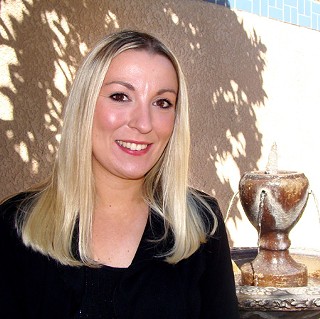Right now, there are more than 200 children in Pima County who are looking for homes. Laura Binette, an adoption specialist with Proud Families, a Devereux Arizona program for LGBT families, says part of her job is reaching out to the LGBT community to let them know that there are children who need them to be foster parents and/or adoptive parents. For more information on Proud Families, visit www.devereuxarizona.org, or e-mail Binette at lbinette@devereux.org.
How did Proud Families start?
We started it because the LGBT population was an untapped resource for foster parenting and adopting. There is a misconception that (LGBT residents) can't adopt, or you can't be a foster parent, but you can. ... Arizona doesn't allow second-parent adoptions, but that's not to say a couple can't go forward and have one be an adoptive parent, and (then) do some legal work after that to make it happen for the entire family.
What has typically kept the LGBT community away?
Laws (banning gays and lesbians from adopting) like they had in Florida scared people, and Arkansas was thinking about doing the same thing; some people hear that and become frustrated. In this political climate, people get a little jumpy, or they hear misinformation. But right now, we've come a long way in Arizona, and it is absolutely possible (for members of the LGBT community to adopt).
How do you start the process?
The first step is to come to a recruitment council (meeting). It's held once a month in the evening, with another (meeting) in the afternoon. You can meet all the foster-care agencies in Tucson and get an idea of what's the best fit for you. The next recruitment council is Tuesday, Oct. 12, at 7 p.m., at Emmanuel Baptist Church (1825 N Alvernon Way). The next afternoon council is at noon, Tuesday, Oct. 26, at La Paloma Family Services (820 W. Miracle Mile).
Are you the only agency that specifically works to recruit LGBT families?
To my knowledge, we're the only agency with this specific track. ... Each family has to decide which agency is the best fit. Once you pick your agency, you then take a 30-hour pre-service class if you are looking to adopt or foster. It's the same class, and you learn a whole lot during the process.
It seems that many LGBT families who do foster care or adopt make homes for kids with severe disabilities. Is that true?
(One of) the questions I get from people is, "Do they only place the hard kids with LGBT families?" But, no. However, there may be more of a willingness from LGBT families to take older children. What's sad right now is that "older" often means kids who are 5 years old and up.
Wow, 5 years old is not "older" to me.
Right now, there is a tremendous need in Arizona for homes for kids who are 6 and older, and sibling groups. We have a lot of need for homes that can take sibling groups. Luckily, what I find with the LGBT community is that they don't have a lot of kids themselves, so it's often easier to place sibling groups and not separate them. I do have some who are hoping to adopt younger kids. It is sometimes a wait-and-see game, which most likely has to start with temporary foster care. You can help a child now and see how the system works, gain parenting experience, learn about the kids in care and learn about family reunification.
Why is it competitive?
A lot of people want younger kids, so if you get a referral for a 1- or 2-year-old, you have 40 families waiting. What a lot of people are doing now is emergency foster care: You can help a kid now, get some experience and see how it works.
There is a chance some of these foster kids will be reunited with their birth families?
That's always the first part of the plan before parental rights are severed. You always have to go into it with family reunification being the goal, but knowing if it doesn't happen, you can be a permanent placement for that child.
How many LGBT families are you working with right now?
I have about 14 families right now. I have a couple of families who have adopted and moved on from us. I'm really happy when we are able to match kids ... with these families, because I know the level of commitment from LGBT families to these kids is huge. This is a decision they've thought a lot about. I am inspired every day by what I see.





